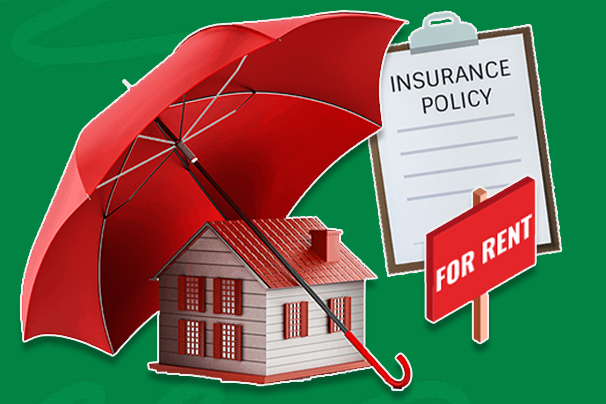Does Homeowners Insurance Cover Rental Property – Undoubtedly, it is a profitable venture when it comes to owning a rental property. However, this also comes with responsibilities and one of them is making sure that property has property insurance coverage. The solution to the protection of personal property and primary residence from natural disasters, fire, and theft is homeowners insurance.

On the contrary, the coverage needs for rental properties is different. This makes many wonder: does homeowners insurance cover rental property? On the other hand, standard homeowners insurance might not be able to give you the necessary protection. Hence, if you understand your homeowners’ policy, you can know when and when not you will be receiving coverage.
Does Homeowners Insurance Cover Rental Property?
The answer to the question Does home insurance cover rental property is No. Typically, rental properties are not covered by homeowners insurance, especially if they are used as investment property or are rented out on a long-term basis. This is because home insurance is meant to offer coverage against risks and threats associated with private residences of policyholders. The personal property of these individuals is also covered by this insurance type.
On the other hand, rental properties come with a whole level of risks and this is associated with tenant occupancy. For instance, loss of rental income, abuse and neglect of the property, and possible legal liabilities. Landlords are advised to get landlord insurance for rental properties and this insurance type offers coverage for renting out your property.
When Does Homeowners Insurance Cover Rental Property?
Although homeowners insurance does not typically cover rental properties, there are some extent to which you can receive coverage with this same policy type but keep in mind that these are specified and limited. Here are situations where home insurance covers rental activities:
- Temporary Rentals: For policyholders who are renting their home because of a special circumstance temporarily, your home insurance policy might offer coverage and protection. However, you must consult your insurance company to understand the scope of your quote.
- Occasional Short-Term Rentals: If you rent out your primary residence for short periods occasionally, like a week or a weekend, your homeowners insurance policy might offer some coverage. This is usually conditioned that you notify your insurance provider in advance.
- Partial Home Rentals: If you want to rent out a part of your home, like a room or a basement, while you reside in the rest of the house, your home insurance policy may provide limited protection. However, keep in mind that specific exclusions and limitations will be applied and it is advisable to get additional liability coverage.
When Will You Not Receive Coverage?
As mentioned, there are crystal exclusions and limitations when it comes to homeowners insurance and covering rental properties. Here are some situations where rental properties are not covered by this insurance type:
- Long-Term Rentals: If you plan to rent out your property for long periods, like a six-month or annual lease, your home insurance will not cover such a rental scenario. Thus, you will need to consider a rental property or landlord insurance policy.
- Business Activities: If you are renting out your home for business purposes, a standard home insurance policy will not be used and helpful. You can purchase a business insurance policy and customize it to meet your needs.
- Multiple Properties: If you have multiple properties and want to rent them out, coverage is excluded from your homeowners’ insurance policy.
How To Choose the Right Insurance Coverage for a Rental Property
Several factors need to be evaluated when it comes to choosing suitable insurance coverage for a rental property. They include:
- Assess the risks.
- Liability coverage.
- Property coverage.
- Loss of income coverage.
- Shop around.
- Professional advice.
You need to make sure that these coverage options are in any rental property insurance policy you want to purchase to get adequate coverage.
Frequently Asked Questions
Can I use my homeowners’ insurance for a vacation home I rent out?
Vacation homes rented out frequently generally require a landlord policy or a more specialized form of homeowners insurance designed for short-term rentals.
Does homeowners insurance cover damage caused by tenants?
No, homeowners insurance typically does not cover intentional damage caused by tenants. Landlord insurance policies usually offer better protection for such scenarios.
Is it more expensive to insure a rental property than a primary residence?
Yes, getting an insurance policy for a rental property can be more expensive than insuring a primary residence. This is because of the higher perceived risks associated with tenant-occupied properties.
What type of insurance should a landlord purchase for a rental property?
Landlords should purchase landlord insurance, which covers property damage, loss of rental income, and liability specifically for rental properties.
Does homeowners insurance cover short-term rentals like Airbnb?
Homeowners insurance may offer limited coverage for short-term rentals; however, often a special endorsement or a separate policy is needed for adequate protection.
Can I extend my homeowners insurance to cover a rental property if it’s only rented out occasionally?
Some insurers allow the extension of homeowners insurance to cover occasional rentals through specific endorsements, but it’s important to check with your insurance provider for specifics.
